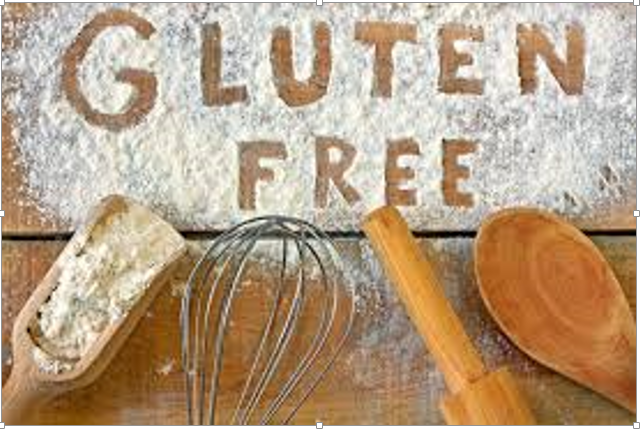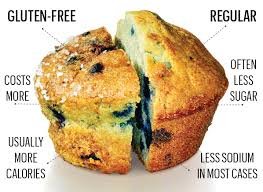What Does Gluten-Free Actually Mean?

Gluten free
What Does Gluten-Free Actually Mean?
Gluten is very controversial these days. Most sources claim that it is safe for everyone except those who have celiac disease. On the other hand, some health experts believe that gluten is harmful for most people.
According to a recent survey, more than 30% of Americans actively try to avoid eating gluten.
This article explains what gluten is, and how it can affect your health.
What is Gluten?
Gluten is a general name for the proteins found in wheat, rye, barley and triticale – a cross between wheat and rye. Gluten helps foods maintain their shape, acting as a glue that holds food together.
Gluten can be found in many types of foods.
Wheat is commonly found in:
breads
baked goods
soups
pasta
cereals
sauces
salad dressings
Barley is commonly found in:
malt (malted barley flour, malted milk and milkshakes, malt extract, malt syrup, malt flavoring, malt vinegar)
food coloring
soups
beer
Brewer’s Yeast
Rye is commonly found in:
rye bread, such as pumpernickel
rye beer
cereals
Why Give Up Gluten?
There are three major reasons why someone might need to give up gluten for health reasons: if they've been diagnosed with celiac disease, if they have a gluten intolerance, or if they have an allergic reaction to wheat.
• Celiac Disease - According to the Mayo Clinic, people with celiac disease have an immune reaction to the gluten in wheat, rye, and barley that causes damage to the small intestine and interferes with the absorption of vital nutrients. Symptoms can be as mild as digestive problems and minor skin rashes or as severe as anemia, arthritis, and intense abdominal pain. It's hard to pinpoint exactly how many people have celiac disease in the United States, mostly because so many people go undiagnosed, but most health experts put it in the range of 2 to 3 million people.
• Gluten Intolerance - There are also a large number of people who have a sensitivity to gluten or are gluten intolerant. These people experience many of the same symptoms as those with celiac disease, but without the accompanying damage to the small intestine. There are also some theories and studies linking gluten intolerance to things like chronic fatigue, depression, irritability, and anxiety.
• Wheat Allergy - A wheat allergy is actually a completely separate condition from gluten sensitivity or celiac disease. It's a histamine reaction to wheat, much like a peanut allergy or a shellfish allergy. People with this allergy usually show hives, rashes, or stomach pain after consuming wheat.
In all of these cases, eliminating wheat and gluten from the diet clears up all the major symptoms. The lining of the small intestine heals and intestinal discomfort fades. The trick is that it has to be total elimination of gluten, meaning no wheat, barley, or rye in any form. For many people, even ingesting a small amount of gluten by accident can bring on a recurrence of the symptoms.

And while many people think that gluten can be eliminated simply by removing breads from their diet, the truth is that gluten is in many, many processed food products, so going to a gluten-free lifestyle often means eating much less processed food and cooking from scratch more often. This is a good thing, but it's also hard to not be able to eat out in restaurants, or have the same conveniences that others do. In fact, it can be a real shock to go to a gluten-free diet overnight.
There is no nutrient in gluten grains that you can’t get from other foods. Just make sure to choose healthy foods. A gluten-free label does not automatically mean that a food is healthy.
Gluten-free junk food is still junk food.
With this brief overview of gluten-freedom, we'd love to hear your stories. If you eat gluten-free, what led you to go gluten-free? How long have you been gluten-free? What has been your experience? How have you found ways to cook and eat gluten-free?
My son is gluten-free. It was a challenge at first, but we've learned through trial and error which products to buy or recipes to follow. In many ways, I'm thankful that it has become trendy to eat gluten-free because it means my son has so many more options than my grandpa, who also had Celiacs, did when he was growing up.
Thank you for sharing your thoughts. Yes, we do have more and more choices today.